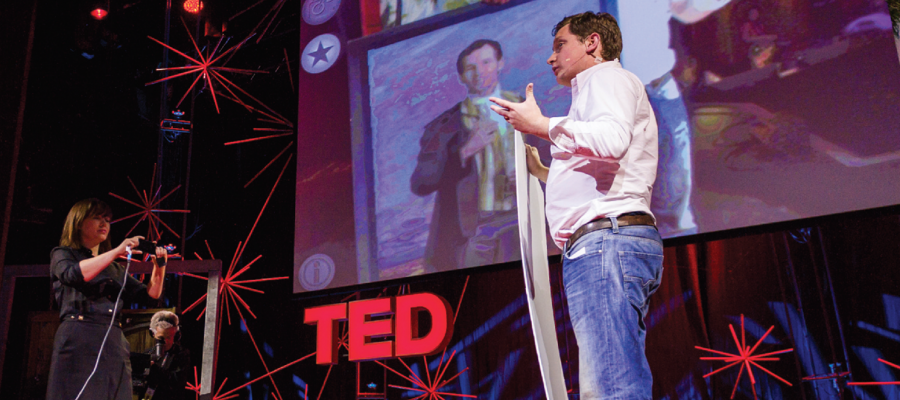One great thing about TED Talks is that they cover a huge variety of interesting topics – big ideas that will engage both you and your learners. But sometimes, they can be fairly technical. Some teachers hesitate to bring technical material into the classroom because they feel they don’t have enough understanding of it themselves to present it to their learners. That’s understandable – but you shouldn’t let it stop you.
A few years ago, I interviewed a group of technical English teachers to learn how they cope in the classroom with technical content that they themselves don’t fully understand. One of the most useful teaching tips that came from that exercise was provided by a teacher whose students are medical doctors – a potentially very intimidating class because of the nature of both the content and learners. He said that after many months of spending way too much time preparing lessons, ‘I realized that I didn’t have to know everything and that I could say to the students that I didn’t know the answer to certain questions.’ He added that ‘one can be as confident about one’s ignorance as much as being confident about one’s knowledge and experience.’ In fact, in the case of medical doctors, English teachers have to be absolutely clear about what they don’t know, so that a doctor doesn’t go away with a mistaken idea about the meaning of a word in English and cause serious harm as a result. It may not feel natural for a teacher to admit to not knowing all the answers, but consider what another teacher suggested: ‘Don’t pretend you are an expert in [your students’] field. Demonstrate you are an expert in teaching English.’ That’s great advice for all teachers, not just technical English teachers.
An example from Keynote
Matt Mills’ TED Talk Image recognition that triggers augmented reality demonstrates technology that’s not necessarily easy to understand or explain. But that doesn’t mean we shouldn’t bring it into the classroom. One of the main reasons for using it is that it’s visually very captivating. Rather than focus on a precise explanation of exactly how the technology works, the exercises in the book focus on the speaker’s message: We can listen for grammatical chunks to help understand fast speech. We can think critically about the speaker’s motivation for speaking. We can look at the presentation skill of being concise – giving just enough information to be clear, but no ‘filler.’ This talk would be equally appropriate for upper secondary, where students use gadgets and apps daily, business classes, where learners would see it as product presentation or in the technical English classroom, with Engineers learning how to explain their work in English.

Try this!
Find a TED talk about a subject you aren’t expert in. Look especially for talks that have the visual attributes discussed in Choose the Perfect TED Talk for your Students’ Needs. Think about what parts of the talk are challenging for you that your learners might know more about. Ask your learners to explain the concepts to you in English. For students of ESP (English for Specific Purposes), being able to explain technical ideas so the non-experts can understand them is an important job skill. Some ideas – David Sengeh: The sore problem of prosthetic limbs (4:43); Jacqueline Novogratz: An escape from poverty (7:30); Hans rosling: The magic washing machine (9:08); Wannis Kabbaj: What a driverless world could look like (11:30); Tan Le: A headset that reads your brainwaves (10:36).
To learn more about National Geographic Learning’s programs with TED Talks visit NGL.Cengage.com/TED.
Author: Lewis Lansford
Lewis got his first taste of teaching English in Barcelona in the late 1980s. The experience inspired him to get a Master’s in TESOL, after which he taught at a university language center in Arizona and then a manufacturing company in Japan. In 1995, he took an editorial job with a major publisher in Hong Kong developing materials for Asia, and in 1997 became a freelance editor, project manager and writer in the UK. He has worked on books, videos, tests, audio materials, worksheets, apps and online materials for English learners of all ages across the world. Lewis is an author for National Geographic Learning’s Keynote and Perspectives series.


